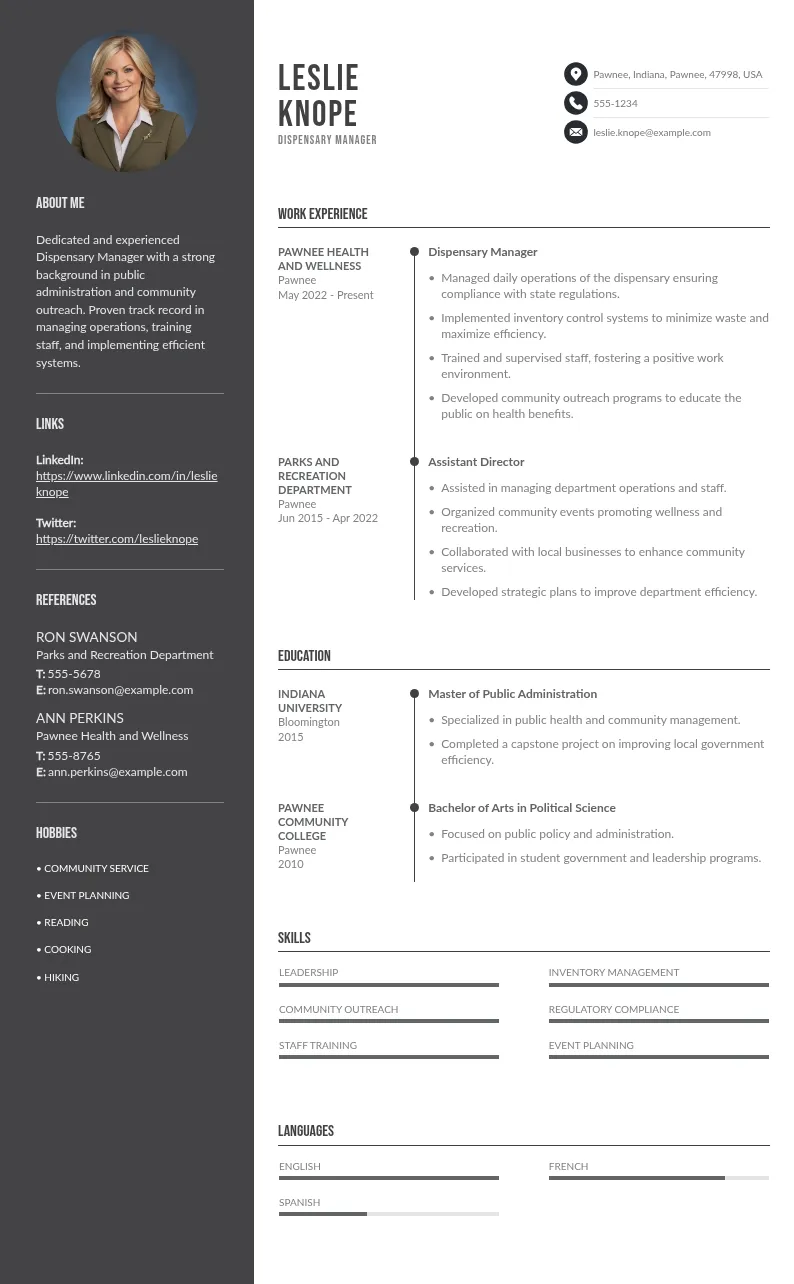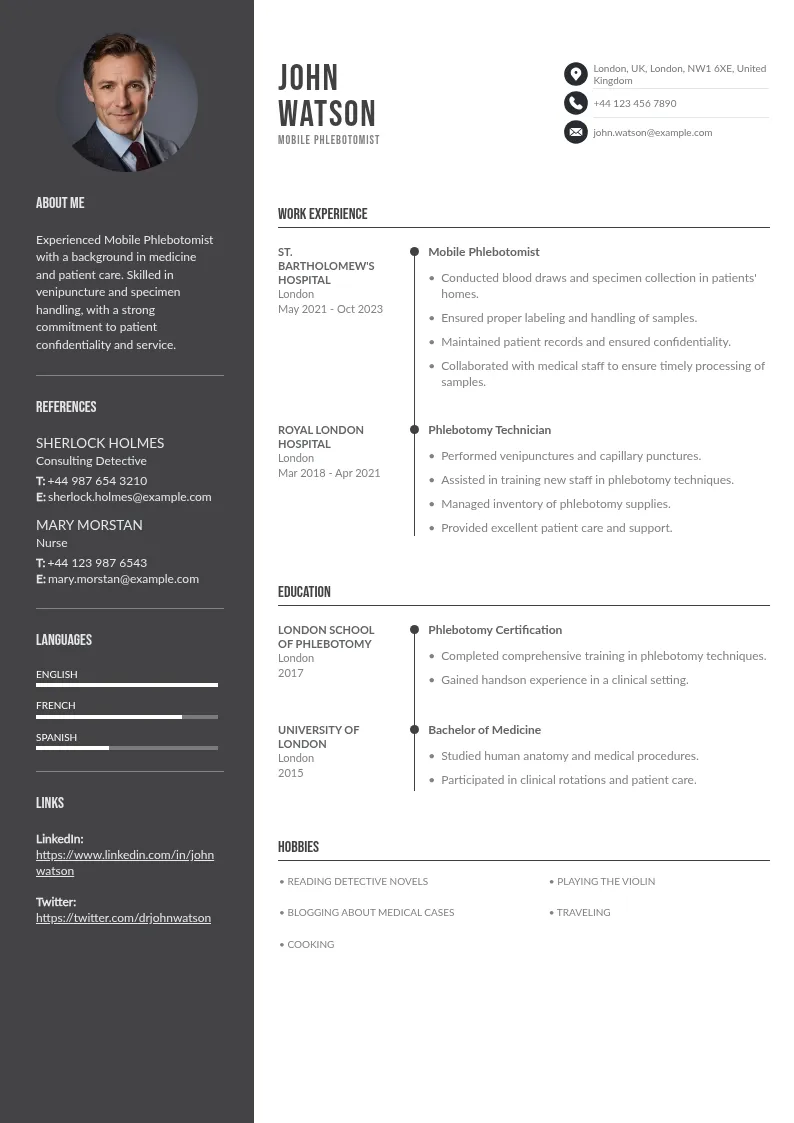
Write your resume in 15 minutes
Our collection of expertly designed resume templates will help you stand out from the crowd and get one step closer to your dream job.


The following guide will walk you through how to include study abroad on your resume just how you want it, so your experience stands out– with clarity and professionalism. This Guide will give you insights on:
- Location to Incorporate Study Abroad Information
- Expand the Education Section
- Emphasis on Transferable Skills
- International and Professional Experience
- Cross-Cultural Communication and Language Skills
- Customize Your Resume Objective
- Keep Study Abroad on Your LinkedIn Profile
- Develop a Strong Cover Letter
- Use Relevant Keywords and Avoid Overstuffing
- Highlight Volunteer Work Abroad
- Frequently Asked Questions about Study Abroad on Resume
- Conclusion

1. Location to Incorporate Study Abroad Information
Your study abroad on a resume can be included in several places on your resume. If it was part of the semester abroad or a summer internship, it goes directly below your education section. If it were experience during an internship or volunteer work while putting study abroad together, you would include that information in the experience section.
2. Expand the Education Section
In the education section, list your study abroad program. This would include the name of the university or program, the dates of your international education, and the country.
3. Emphasis on Transferable Skills
Your experience abroad likely provided you with skills in time management, leadership, and cross-cultural communication skills. These apply across a wide range of jobs and should be integrated into bullet points under relevant resume sections.
Under the work experience or volunteer experience, it should explain how adapting to another culture has helped improve your ability to interact with individuals representing other backgrounds.
4. International and Professional Experience
If your sojourn included an internship or work experience, describe the work you did and the new skills you acquired. Providing these details helps you showcase personal development.
So if you spent some time working in an unfamiliar culture, you might well want to talk about how you approached new challenges that arose, and how flexible and adaptable you were in such settings.
5. Cross-Cultural Communication and Language Skills
Don't forget to include any foreign language skills or cross-cultural communication abilities you may have acquired. Of course, you are not fluent, but it can make a difference to your resume.
It is interesting that many employers place an emphasis on cultural awareness and speaking one or more languages, especially in international corporations.

6. Customize Your Resume Objective
Use the example of your study abroad experience to reflect on how that has prepared you for the jobs you're applying for. Talk about how studying abroad really gave you a much broader understanding of international experiences, cross-cultural understanding, and global perspectives that are directly applicable to the job.
7. Keep Study Abroad on Your LinkedIn Profile
Do not forget to add any study abroad and your resume to your LinkedIn profile. For that matter, according to some certified professional resume writers and potential employers, you should optimize your LinkedIn with all your international experiences, including volunteer work or internships.
This keeps you noticed in your job search and reflects the benefits of your international background.
8. Develop a Strong Cover Letter
Reflect on your time abroad in the cover letter and document your job application. Whether it's developing flexibility, problem-solving in another culture, or receiving new ideas, these new skills are worth mentioning to make your resume and application stand out.
9. Use Relevant Keywords and Avoid Overstuffing
As much as you want to extol the good things about your study abroad experience, be selective. Be specific on matters that apply most to the job.
Show the challenges overcome, the knowledge gained, and how your international study abroad program equipped you with the necessary skills for the company.
10. Highlight Volunteer Work Abroad
Also, Occupations devoted to assisting people has made an environment controlling the ‘country vacation abroad’’. Include this global activity in your CV or resume, presented in the form of any overseas programs, work experience, or volunteer work.
Volunteering is likely to support your global workers’ profile because it showcases your capability to adapt to various working environments that exist in an international setting. This also seeks to bring out your transfer skills, which most employers are interested in.

Conclusion
Thus, you can share transferable skills, cross-cultural communication, and even professional achievements in your resume by including your study abroad experience. It indicates how adaptable you are, a good problem-solver, and sometimes with leadership abilities in many settings. Make use of this international experience when customizing your resume objective and do not forget to add relevant keywords.
Be sure to add your study abroad experience to LinkedIn within the education section and where applicable within a separate global competency or certifications area. By discussing your international achievements, you establish a compelling reason for employers to choose you over someone else as a better candidate for a global perspective and valuable, transferable skills.

















